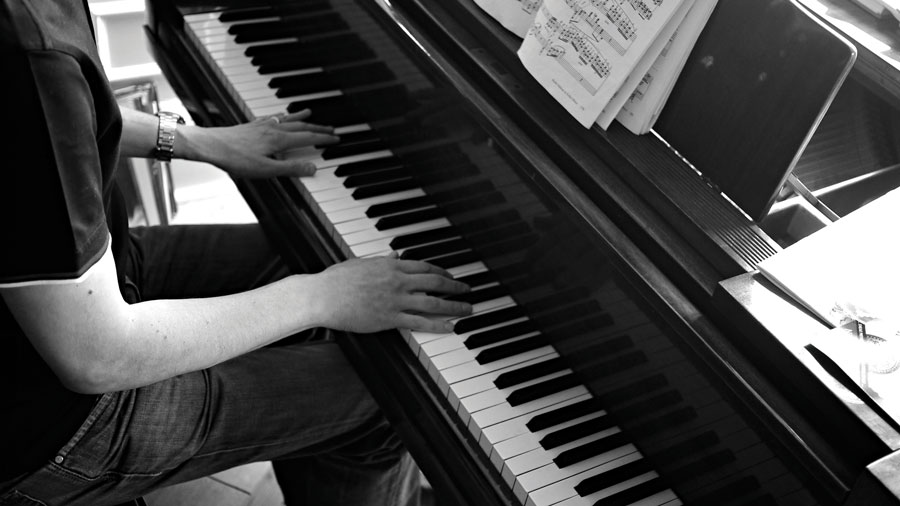By Luke Camilleri
Homework can sometimes be more of a hindrance than a help. While learning to play an instrument, students are given pieces of music by their teacher to practice at home. Home practice leads to mistakes which are difficult to correct. New students struggle to recognise errors and this could discourage them from continuing their studies.
Luke Camilleri (supervised by Alexandra Bonnici) investigated a computer tool which evaluates students’ performance of a music piece by comparing it with a pre-recording made by their teacher. The music tutor tool worked with a piano. Its objectives are two-fold: firstly, it detects mistakes done in both the pitch and rhythm, and secondly, it helps students self-assess their playing through a computer interface.

The student’s playing is recorded as an audio signal to which signal processing techniques were applied. Signal processing extracts the main features of a signal. These included information about the pitch and rhythmic qualities of the music being played. Understanding the makeup of the sound waves can help determine the notes played. Detecting the beginning of new notes can identify whether the student is playing in time. In this way, the student’s and teacher’s performances may be compared to identify any differences. Since students have the tendency to repeat notes played badly, the two audio signals are not so easy to compare. Various techniques (non-negative matrix factorisation and dynamic time warping) were used to obtain an optimal alignment of the two signals for more accurate comparison of pitch and rhythm.
The tutor’s interface was designed to help students improve their ability to identify a mistake. It identified bar sections (sections of music) that contained errors asking the student to repeat that section. This lets the student identify their errors. Additional hints are given if mistakes are repeated.
The music tutor was assessed with a student in the early stages of tuition. She was asked to play a piece of music she had never seen before. The prototype identified mistakes that the student had initially failed to recognise. It helped her learn how to play the piece correctly. The tool can be improved by allowing the student to practice music with both hands. Homework could soon be reinvented with computers providing help to those that need it the most.
This research was carried out as part of a Bachelor in Engineering at the Faculty of Engineering, University
of Malta.





Comments are closed for this article!